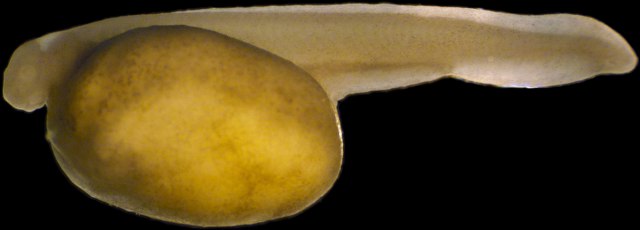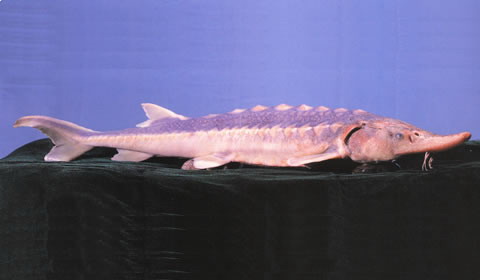Acipenser medirostris Ayres, 1854
Description
Dorsal spines (total): 0; Dorsal soft rays (total): 33 - 35; Anal spines: 0; Anal soft rays: 22 - 28. Characterized by a single row of 1 to 4 bony plates along the midventral line between the anus and the anal fin, and about 33 to 35 rays in the dorsal fin. Dorsal arises at posterior third of the total length; anal fin arises under posterior part of dorsal; pectorals originate low on the body just behind gill opening and are large and rounded; pelvic fins arise near the anus. Generally olive to dark green, lower parts more or less whitish green; a longitudinal olive-green stripe on side between lateral and ventrolateral plates, another on midventral surface; fins grayish to pale green (Ref. 27547). Barbels usually situated closer to mouth than to snout tip; coloration of scutes along side paler than skin (Ref. 86798).
Common Names
No common names available.
Taxonomic Hierarchy
Kingdom: Animalia
Phylum: Chordata
Class: Chondrostei
Order: Acipenseriformes
Family: Acipenseridae
Genus: Acipenser
Species: Acipenser medirostris Ayres, 1854
Climate Zone
Location
Biology
Found in estuaries, lower reaches of large rivers, and in salt or brackish water off river mouths (Ref. 5723). Probably spawns in fresh water (Ref. 27547). May cover considerable distances in the ocean (Ref. 27547). Edible but with a disagreeable taste and unpleasant odor (Ref. 1998).
Habitat
freshwater



